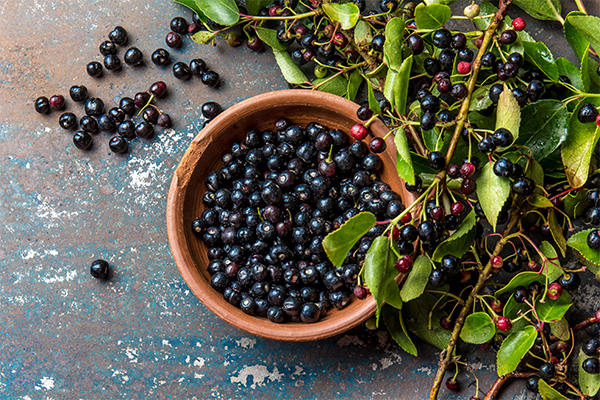Paneer dodi: Traditional Indian medicine may hold the key to treating diabetes
06/11/2020 / By Divina Ramirez

Extracts from the herb Paneer dodi, a plant used in traditional Indian medicine, show potential as a treatment for diabetes, according to a recent animal study.
Published in ACS Omega, it showed that the oral administration of encapsulated Paneer dodi extracts to diabetic mice led to a 40 to 60 percent reduction in blood glucose levels. The extracts also increased the production of insulin by cultured pancreatic B cells.
Diabetes: a global epidemic
More than 100 million American adults are living with diabetes or prediabetes, according to recent reports from the Centers for Disease Control and Prevention (CDC). These figures suggest that this infamous metabolic disease represents a growing health problem worldwide.
Type 2 diabetes, the most prevalent type of diabetes, is linked to an unhealthy lifestyle, which includes low levels of physical activity and poor nutrition. Because of this, some experts believe that the best way to treat Type 2 diabetes is to adopt healthy lifestyle changes, such as following a balanced diet and exercising regularly.
However, implementing such changes is often easier said than done. The downside of this is, diabetics who struggle to eat healthy and/or exercise regularly end up becoming dependent on conventional diabetes treatments, such as insulin injections and oral anti-diabetic medications. Long-term use of these treatments can make it difficult for diabetics to achieve remission without the need for life-long medication.
Diabetes also poses a significant financial burden. According to the Diabetes Research Institute Foundation (DRIF), the total estimated cost of diagnosed diabetes in the U.S. in 2017 was $327 billion. The DRIF also reported that excess medical costs related to diabetes has increased to $9,601 per person that year.
Plant extracts found to have anti-diabetic properties
Withania coagulans or Paneer dodi is a medicinal shrub that has long been used in Ayurveda. Ayurveda, which originated in India, is one of the oldest holistic healing systems in the world.
Ayurveda is based on the belief that health and wellness depend on the delicate balance between an individual’s mind, physical body and spirit. A lack of balance makes an individual susceptible to illness and disease. However, the main goal of Ayurveda is to improve overall health and promote well-being, not combat disease-causing pathogens.
That said, the herbs and spices used in Ayurvedic medicine contain powerful components that exhibit numerous therapeutic properties. Paneer dodi, for instance, is hailed for its anti-diabetic effects. However, the bitter taste and strong odor of Paneer dodi often discourage people from consuming doses large enough for them to experience its anti-diabetic effects.
Encapsulated Paneer dodi extract lowers blood glucose levels
To address this problem, a team of researchers from Nanyang Technological University in Singapore, Suranaree University of Technology in Thailand and Harvard T. H. Chan School of Public Health extracted plant steroids from Paneer dodi berries.
The researchers encapsulated these compounds in nanoparticles made from chitosan, a sugar found in the exoskeletons of shellfish. They coated the particles with starch to protect the plant steroids from acidity and delay their release in the stomach.
They then tested the anti-hyperglycemic effect of the encapsulated Paneer dodi extracts by administering them in capsule form to diabetic mice for five days. The researchers monitored the animals for another five days after the treatment to check for changes in their blood glucose levels.
The researchers found that the encapsulated plant steroids decreased the blood glucose levels of diabetic mice by 60 percent. They also increased insulin secretion by mouse-derived pancreatic B cells in culture. (Related: Foods, herbs and spices that help reverse insulin resistance.)
Based on these findings, the researchers concluded that using Paneer dodi extracts encapsulated in an efficient and biocompatible delivery system is a promising strategy for treating diabetes.
To learn more about Paneer dodi and other anti-diabetic plants, visit PlantMedicine.news.
Sources include:
Submit a correction >>
Tagged Under:
alternative medicine, anti-diabetes, Ayurveda, diabetes cure, diabetes science, disease treatments, herbal medicine, Herbs, natural cures, natural medicine, Paneer dodi, plant medicine, prevention, remedies, research
This article may contain statements that reflect the opinion of the author
RECENT NEWS & ARTICLES
BloodSugar.News is a fact-based public education website published by Blood Sugar News Features, LLC.
All content copyright © 2018 by Blood Sugar News Features, LLC.
Contact Us with Tips or Corrections
All trademarks, registered trademarks and servicemarks mentioned on this site are the property of their respective owners.





















